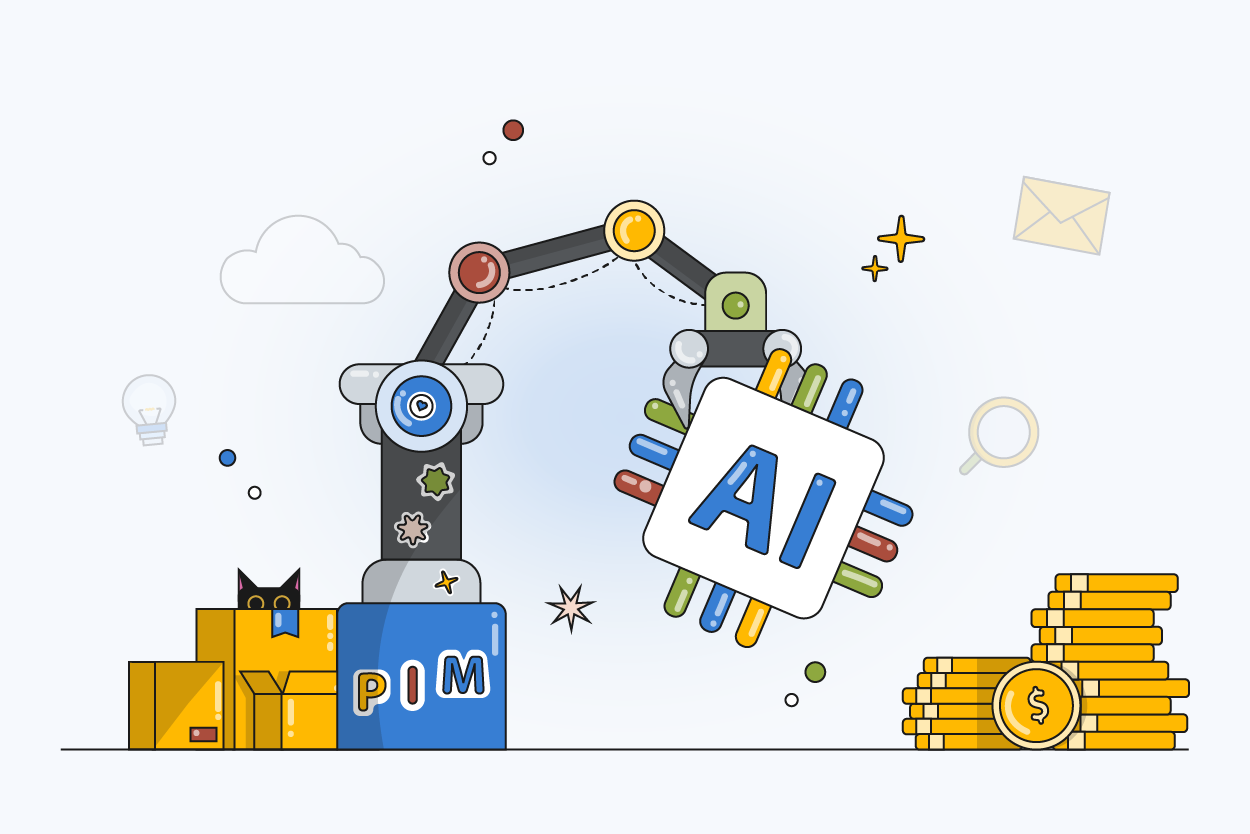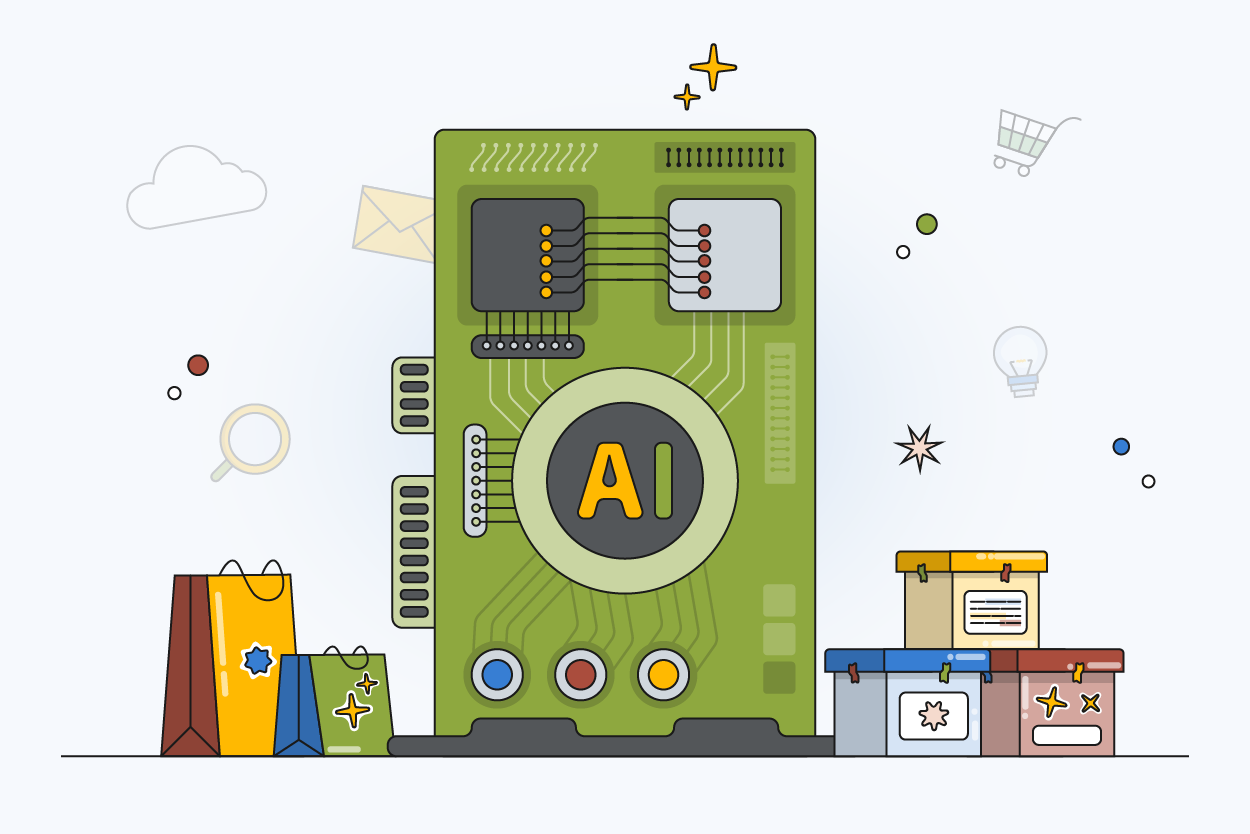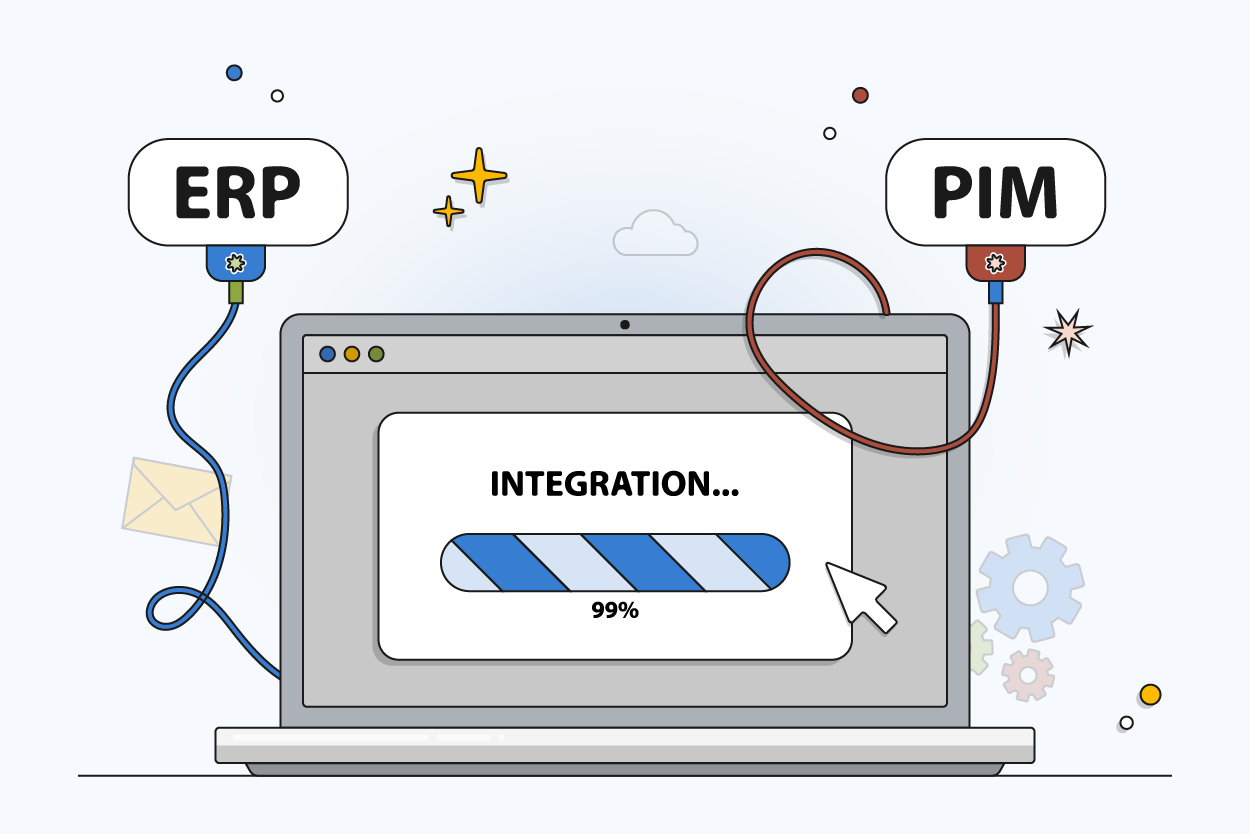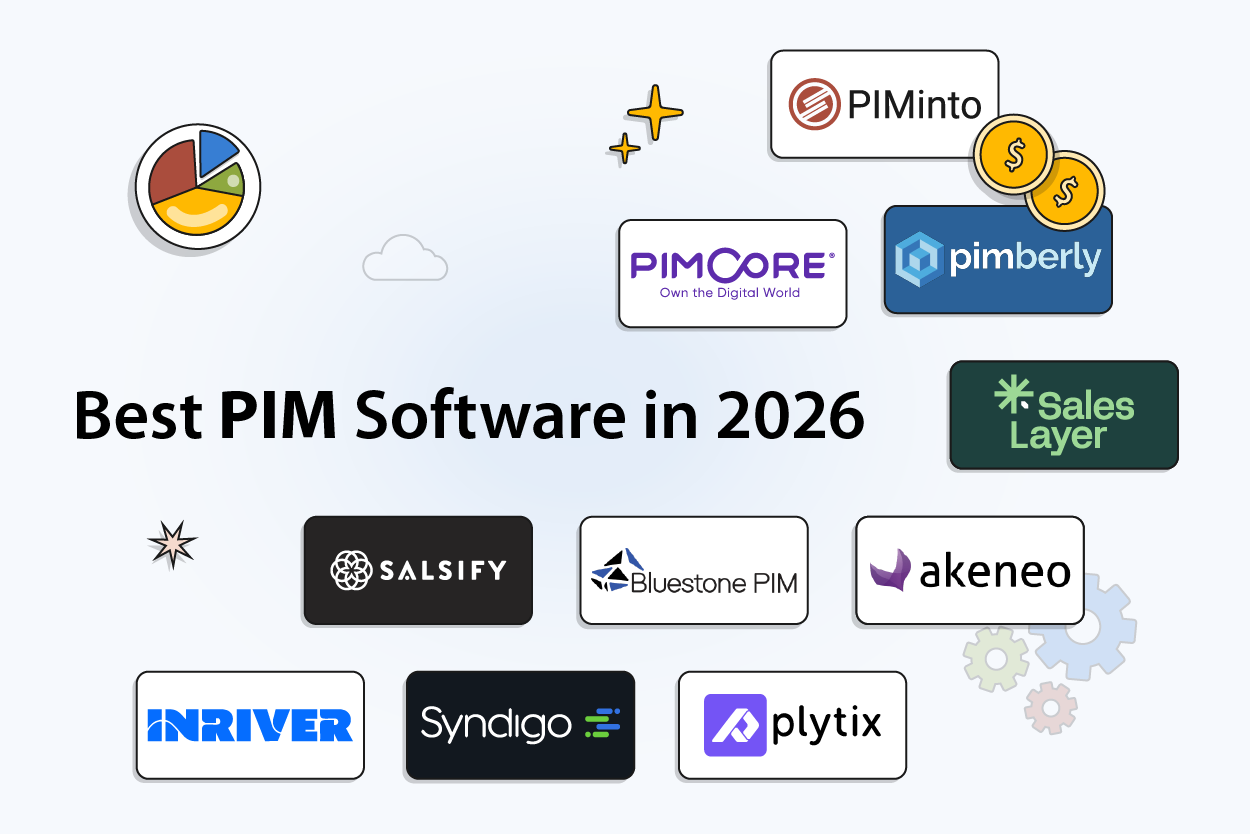How AI is Transforming and Simplifying Product Information Management for Manufacturers
Author name: Bradley Taylor

Manufacturers today face a complex challenge in managing product information across digital channels. With product data becoming increasingly critical to business success, companies are seeking more intelligent ways to manage their information ecosystems. In this article, we’ll examine how artificial intelligence (AI) is helping manufacturers reimagine their product information strategies to deliver better results for their business.
The Evolution of Product Information Management
Product information management (PIM) has significantly transformed over the years. What once involved basic spreadsheets and other disconnected systems has given way to more advanced software solutions. None is more impactful than PIM software. The introduction of dedicated PIM systems helped improve data management across the organization through centralized and consistent information.Challenges Manufacturers Faced Before AI Integration
While PIM vastly improves manufacturers' product data management, it still requires human input. Because of this, the sheer volume of product attributes, specifications, and digital assets makes it difficult to maintain high-quality, consistent product information at scale. As a result, before AI, manufacturers often struggled with numerous PIM-related challenges.
Manual data entry led to errors and inconsistencies across product descriptions. Teams spent many hours standardizing product information across channels. Additionally, manufacturers faced bottlenecks in localizing product content for different markets. These challenges slowed down operations and made it difficult to foster the strong customer engagement that results from high-quality product content.

How AI Enhances PIM for Manufacturers
AI in PIM systems helps manufacturers achieve high-quality product information with greater efficiency. Let’s examine some of the most impactful ways AI leads to more intelligent PIM tools.
1. Automating Data Entry
AI-powered PIM systems can analyze product data to help automate data entry. Leveraging natural language processing (NLP), the AI extracts key details from product descriptions and specifications to populate fields with minimal human intervention. It can suggest relevant attributes and fill in missing details to significantly accelerate the process of adding new products to your catalog.
2. AI-Assisted Content Generation for Product Data
AI for PIM can generate high-quality product content, based on existing product data. This feature helps manufacturers enrich their product catalogs without requiring extensive manual input. AI-driven content generation can produce engaging and search-optimized descriptions that would take a human much longer to create.
3. Improving Multichannel Product Distribution
Expanding into international markets requires accurate and efficient product content translation. AI-powered PIM systems enable such by automatically translating product descriptions into multiple languages. Unlike traditional translation methods, AI is highly efficient at maintaining contextual accuracy, helping you preserve the meaning of the original content.
Why Manufacturers Are Switching to PIM Solutions
Discover the core benefits that make PIM essential for modern manufacturing businesses - from faster time-to-market to seamless multichannel distribution.
Most Significant Benefits of AI in PIM Systems
Here are some of the biggest benefits AI has brought to PIM systems.
1. Faster Time-to-Market
AI-powered PIM systems accelerate product launches through multiple efficiency improvements. When launching new products manufacturers traditionally spent weeks or months preparing, validating, and distributing product information across various channels. AI transforms this process. Teams can now use AI for PIM to enter and enrich data, drastically reducing the time required to prepare product listings.
2. Increased Efficiency with AI-Driven Workflows
AI-powered PIM systems boost team productivity by removing traditional bottlenecks. Data entry, which was once time-consuming can now be done efficiently. Similarly, teams can now complete and enhance product descriptions in a fraction of the time. As a result, AI for PIM gives you more time to focus on strategic initiatives that drive business value.
3. Cost Savings and Scalability
The automation and efficiency gains provided by AI-powered PIM systems translate into significant cost savings. Less manual labor means less you need to spend on product data management. AI for PIM also supports scalability. As your manufacturing business expands, AI can take on the growing volume of product data without significant increases in operational costs.
4. Higher Quality Product Content
High-quality product descriptions are essential for engaging customers and driving conversions. An AI-powered PIM system assists in refining product content by suggesting improvements and incorporating relevant keywords. It can produce content that is both informative and compelling for potential buyers. This results in stronger customer engagement and higher performance across digital sales channels.
5. Localization for Global Markets
AI-powered PIM can automate product content translations, helping manufacturers ensure their product information resonates with global audiences. This results in a better customer experience and increased market penetration, all without the extensive manual effort previously required.
Managing Product Images and Digital Assets at Scale?
AI-powered PIM works hand-in-hand with Digital Asset Management. Learn how DAM streamlines your product imagery, videos, and marketing materials across all channels.
Examples of Manufacturers Using AI for PIM
Let’s consider some example scenarios highlighting how manufacturing organizations can use AI for PIM to yield better results.
1. Electronics Manufacturer Automates Product Updates
An electronics manufacturer faces a massive challenge updating product information across its extensive global product lineup. However, implementing an AI-powered PIM system lets the company transform its approach to product data management. The AI can automate data entry to save the company a vast amount of labor hours.
2. Automotive Parts Manufacturer Enhanced Product Content
An automotive parts manufacturer once struggled with creating compelling product content for its assortment of auto parts. But, adopting a PIM with AI changed the situation. The manufacturer now uses AI to enrich product descriptions across its entire catalog. As a result, their product details are now more informative and engaging for customers.
3. Global Pharmaceutical Manufacturer Improves Global Reach
A multinational pharmaceutical manufacturer faced challenges managing product information across multiple languages and regions. Their AI-powered PIM system became vital for translating product content accurately. The AI solution automatically translates descriptions into various languages while maintaining the appropriate context for each global market.
4. Consumer Goods Company Boosts Multichannel Sales
A consumer goods manufacturer with a vast portfolio of brands implemented an AI-driven PIM system to streamline multichannel product data management. The solution addressed the strain of maintaining consistent product information across e-commerce platforms, retail websites, and physical store catalogs. The result was an increase in online sales conversion rates and a significant reduction in the resources required to manage product information.
Is Your Business Ready for PIM?
Take our 2-minute assessment and get personalized recommendations
- Analyze your current product data challengesGet instant recommendations based on your business profileSee which PIMinto plan fits your needsLearn if PIM will solve your specific problems
PIMinto and AI: How to Get Started?
PIMinto is an advanced PIM system that offers direct integration with the OpenAI Assistant API. This integration infuses the PIM with several AI tools that manufacturers can use to improve product data management.
Automated Data Entry and Updates
PIMinto addresses the inefficiency of manual data management by allowing you to use AI to automate data entry and product information updates. The AI assistant can extract relevant data from your PIM catalogs and apply it directly to product updates. This automation accelerates the data entry process while also minimizing human errors that are inevitable with a high volume of work.Enhancing and Enriching Product Descriptions
PIMinto's intelligent PIM analyzes your existing product descriptions and provides recommendations to make them more compelling. You can use the recommendations to incorporate relevant keywords to improve search engine rankings. You can also use the AI to quickly craft product narratives that truly resonate with your target audience.
Translating Product Descriptions
PIMinto’s generative AI features help you break down language barriers to expand your global reach. The PIM includes AI-powered translation tools that translate product descriptions into other languages automatically. The translations are contextually accurate, ensuring your product information keeps its core message. As a result, you can benefit from localized content that resonates with customers in different regions.
Conclusion: The Future of PIM with AI
The integration of AI into PIM systems represents a big leap forward in how manufacturers manage product information. As AI technology continues to evolve, we can expect even more AI capabilities for data management in PIM systems. Manufacturers who adopt these technologies early can gain a competitive advantage over those who continue with less efficient systems.
Ready to Streamline Your Product Data with AI?
See how PIMinto's AI-powered features can automate data entry, enrich product descriptions, and accelerate your time-to-market. Book a personalized demo today.
Modified on: 2025-02-12



